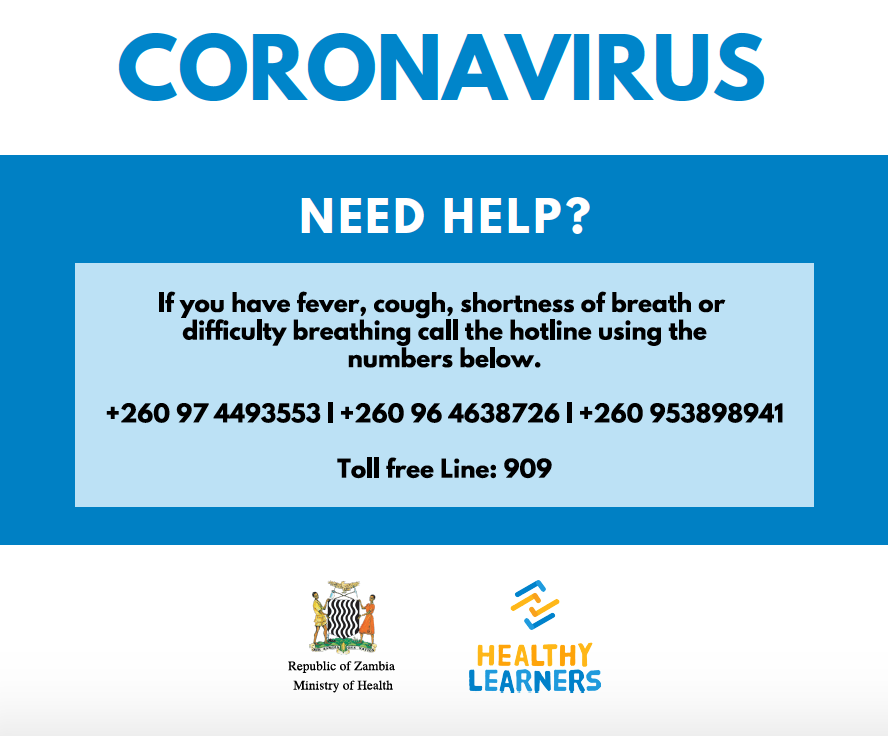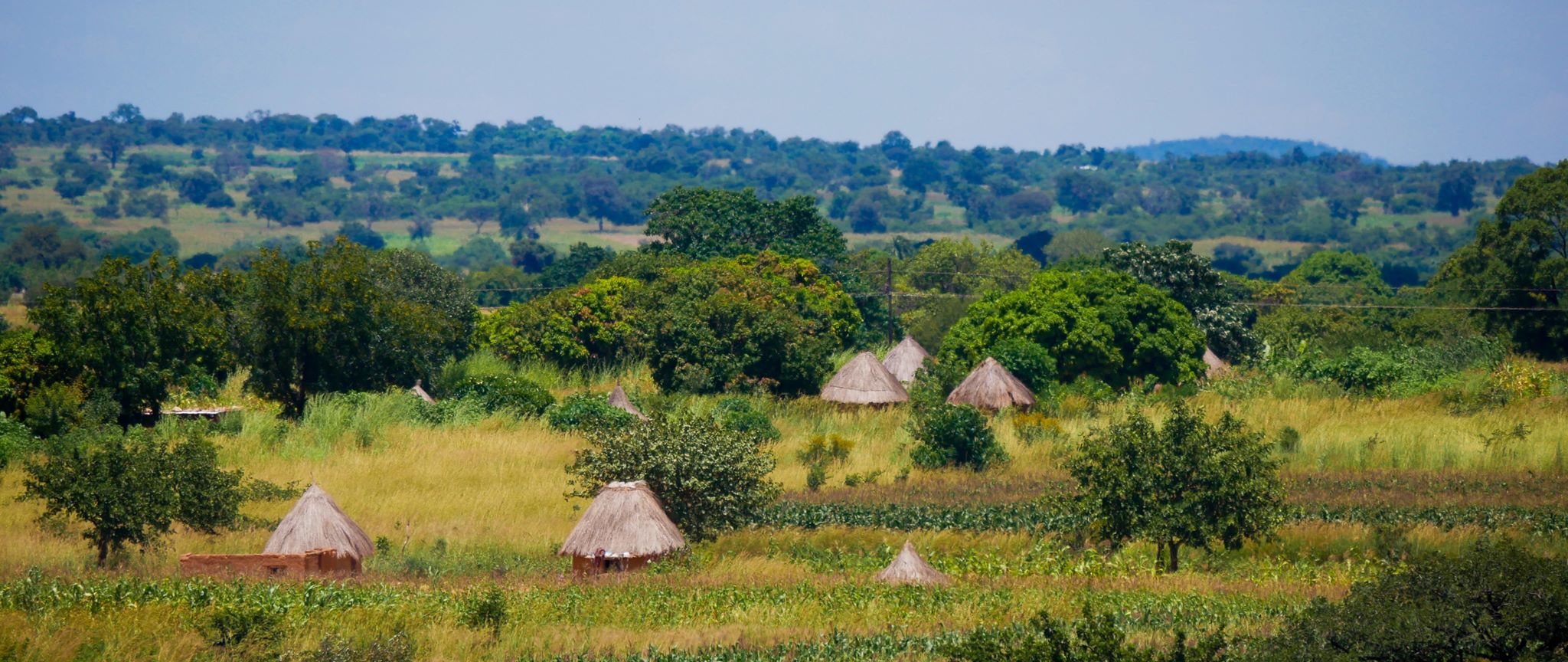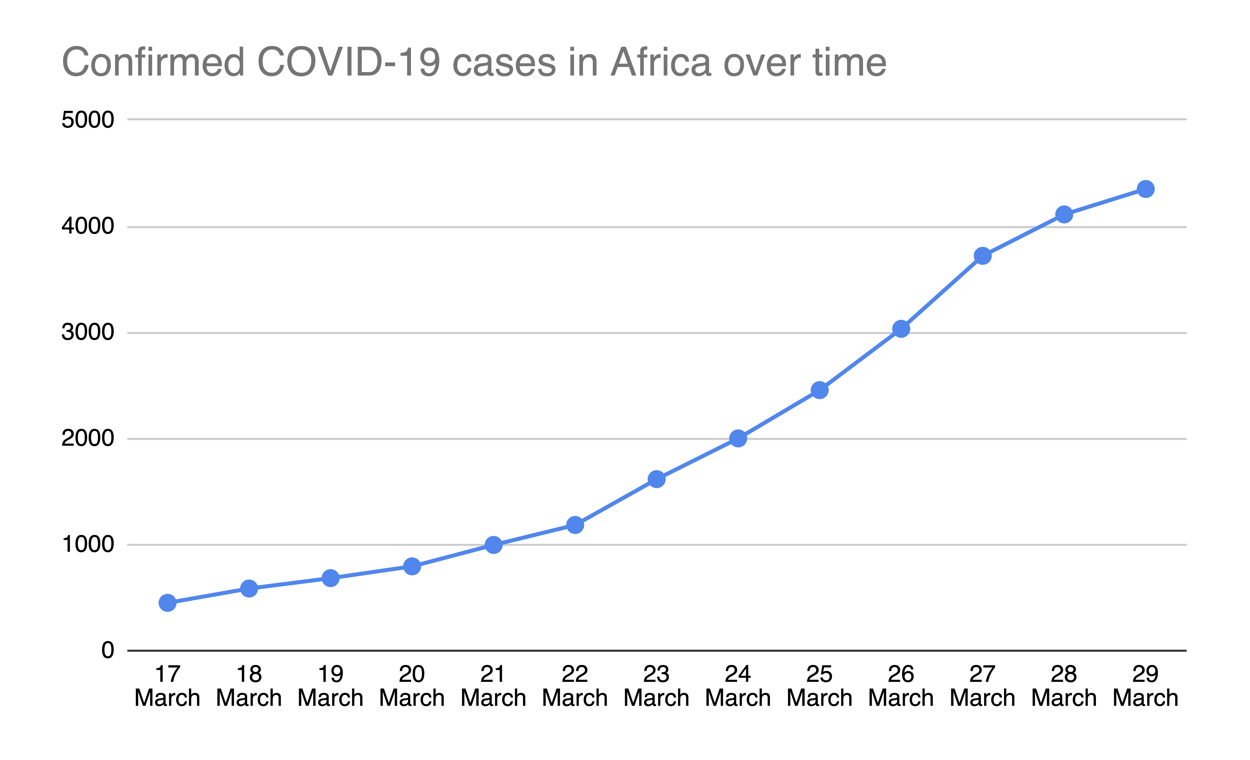Graph reproduced from African Arguments
Only three weeks ago, it was difficult to ever imagine a time when the world would be in lockdown. And yet, here we are. And in many communities, we are adapting remarkably quickly. It has become the new normal for many people to work from home. From our snug, often make-shift home offices, where time seems to be on a go-slow, it is still hard for us to imagine the work being done around the clock at our hospitals to look after the ever-increasing number of patients suffering so horribly from the coronavirus. In fact, it is even possible to forget that this is the reason we are in lockdown.
The grim reality is that cases and deaths are soaring. The pandemic is not yet showing any signs of easing in Europe and has yet to take hold in most African countries. In the end, we will all know someone who has been badly affected by the disease.
This is the first time, in my lifetime, that something has taken place that literally affects every single person in the world. In Zambia, even the rural farmer who appears to have few connections outside his or her own community, is expected to produce more crops to combat the lack of imports of other countries. The marketeers are expected to have their stalls wider apart, meaning that some won’t have a spot from which they can sell their goods. And prices, even of mealie meal, the staple food, are increasing rapidly as the kwacha falls against the dollar.
The government has imposed restrictions on the buses, which are usually crammed full of people and their belongings, on the numbers of people allowed to be on board to try to limit the spread of the virus. This affects the profitability of the buses and the wages that the drivers and their helpers will be paid.
But how possible is it for Zambia to achieve a lockdown? For many Zambians, as much as they might desire to adhere to the government’s isolation instructions, they live a hand to mouth existence that means they have to go out. They have to move around to try to earn enough money to put a meal on the table for their families. They have to make a choice between deciding what is worse: dying from starvation or dying from coronavirus?
People must try to stay at home and self-quarantine if they are showing symptoms, but if they can’t because they need to fend for their families’ survival, then please be responsible and keep two metres away from people, greet them with a smile and a small bow from a distance, and wash your hands very regularly with soap and water.
But even this advice is difficult for some. Staying at home is a freedom we don’t all have, especially when the only means to be able to afford a meal for the family is by going out to work on crowded streets. Having space to self-isolate is a privilege; having soap when you can’t afford a meal is also a privilege. Having clean water is something that many people in the world don’t have access to – even in 2020. Please try. And let’s help those who aren’t as fortunate as we are.
Back to the global stage, the UN Secretary General on March 19 called for global solidarity:
“We are facing a global health crisis unlike any in the 75-year history of the United Nations — one that is spreading human suffering, infecting the global economy and upending people’s lives.”
As America becomes the newest epicentre for the virus, it is unlikely that Zambia will be able to rely on help from the US. However, China – both the government and the private sector – is now out of the worst of the crisis and is taking the lead in providing supplies and expertise to other countries. For instance, billionaire Jack Ma, the founder of Alibaba, has donated 1.1 million testing kits and 6 million masks to Ethiopia, to be distributed by Ethiopian Airlines around the continent. From the other side of the world, Cuba has continued its decades-long tradition of medical solidarity by sending doctors abroad to join the battle against the virus.
In Zambia, organisations are also helping out. Wayawaya, a social enterprise based in Livingstone that makes bags, is putting their sewing machines to good use by making masks. Local hotels have donated sheets to use for the linings of the masks and local NGOs are looking at how to distribute the masks.
The world will survive this pandemic, and I hope that we come out of it having learnt to consider others more and work together for a better world.
Olusegun Obasanjo, Ellen Johnson Sirleaf, and Jonathan Oppenheimer wrote on behalf of the board of The Brenthurst Foundation:
“Today, despite the temptation to hunker down and isolate, we need to continue to reform and push for openness and competitiveness. We must act locally, but we need to keep thinking globally.”



